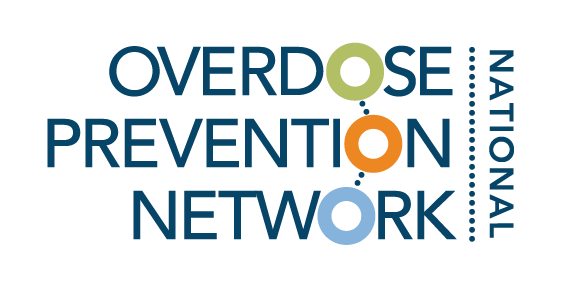
Events & Webinars
Filter by category and tags. Or search by keyword (ex. harm reduction).

COPN Workshop: Healthy Places Index Data Access and Interpretation
The California Overdose Prevention Network (COPN) and the Public Health Alliance of Southern California are teaming up in this webinar and workshop series to discuss how intervening on the social determinants of health (SDoH) can reduce the opioid overdose rate and overdose deaths. Join us on Wednesday, March 11 from 11:30 am to 12:30 pm PT for the first workshop in the series that will discuss how to access and interpret the Healthy Places Index and build on the foundational skills from the first webinar. During the workshop participants will learn how to access and interpret HPI data, with a focus on opioid-related indicators. This session will include hands-on exercises and Q&A opportunities.
In the workshop series together we will:
Take a deep dive into a new tool called the Strategic Action Planner & SDoH Roadmap that will help coalition members
Effectively access the opioid data on the HPI map platform
Understand what these data mean and how to use them to develop community-driven solutions
Learn key strategies for communicating results and implementing solutions with communities

COPN Workshop: Data Application and Messaging Strategies
The California Overdose Prevention Network (COPN) and the Public Health Alliance of Southern California are teaming up in this webinar and workshop series to discuss how intervening on the social determinants of health (SDoH) can reduce the opioid overdose rate and overdose deaths. Join us for the final workshop in this series on Wednesday, April 8 from 11:30 am to 12:30 pm PT. In this workshop participants will combine the knowledge from the first two sessions to be able to develop a messaging plan using key strategies to best communicate the data findings from the Healthy Places Index (HPI). During the workshop participants will review practical applications of HPI data in the context of opioid prevention efforts. Participants will learn and practice effective messaging strategies for various stakeholders, including policymakers and community members.
In the workshop series together we will:
Take a deep dive into a new tool called the Strategic Action Planner & SDoH Roadmap that will help coalition members
Effectively access the opioid data on the HPI map platform
Understand what these data mean and how to use them to develop community-driven solutions
Learn key strategies for communicating results and implementing solutions with communities

More than a Map: Healthy Places Index & Social Determinants of the Overdose Epidemic
The California Overdose Prevention Network (COPN) and the Public Health Alliance of Southern California are teaming up in this webinar and workshop series to discuss how intervening on the social determinants of health (SDoH) can reduce the opioid overdose rate and overdose deaths.
This first webinar will cover:
How improving community conditions like increasing household income, access to transportation, and safe, stable housing are key aspects of opioid overdose prevention
How and what community-centered solutions can improve opioid overdose rates
How to use the Healthy Places Index (HPI) map platform to determine community strengths and opportunities for intervention to improve opioid overdose death rates, emergency department visits, hospitalizations, and opioid prescription rates
In the workshop series together, we will:
Take a deep dive into a new tool called the Strategic Action Planner & SDoH Roadmap that will help coalition members
Effectively access the opioid data on the HPI map platform
Understand what these data mean and how to use them to develop community-driven solutions
Learn key strategies for communicating results and implementing solutions with communities

COPN Convening: Messaging Strategies for Overdose Prevention in California
Messaging is powerful: what we say, how we say it, and who we say it to. Every day, local coalitions across California implement innovative communication strategies to advance overdose prevention and save lives. Join us on Tuesday, February 3 from 12:00 pm - 2:00 pm PT for the 2026 virtual Bi-Annual COPN convening on effective messaging strategies in overdose prevention. We will hear from a panel of local coalition leaders who will share their experience implementing innovative messaging strategies to engage new partners and community members. After the panel, participants will dive further into these innovative approaches and learn practical steps to get started in your own community. Don't miss out on this opportunity and register today!

COPN Workshop: Navigating the Spectrum of Addiction Treatment
Navigating addiction treatment can be confusing, discouraging, and frustrating for individuals seeking help and for the families and communities who support them. Although effective treatments exist, including life-saving medications like buprenorphine (Suboxone), many people never receive care, struggle to stay engaged, or encounter stigma and misinformation that block their path to recovery. This workshop will offer a deeper dive into the concepts presented during the NOPN webinar, The Path to Recovery: Understanding the Ups and Downs of Addiction Treatment. During the workshop, participants will discuss how stigma and misinformation create barriers to care in their community and what providers, advocates, and community members can do to expand access, reduce harm, and create more compassionate pathways to recovery. Participants will leave with practical insights and next steps they can take to support individuals and families affected by substance use disorder.

The Path to Recovery: Understanding the Ups and Downs of Addiction Treatment
It is frustrating for people with a substance use disorder and their families when attempts to seek treatment are met with challenges, or when treatment appears to not work. It can also be exasperating when someone appears to be in treatment, then falls out of treatment or when this pattern repeats. Even though treatment for opioid use disorder is highly effective, for these and other reasons, it is significantly underused. Medications like buprenorphine, also known as Suboxone, can help people manage their cravings and significantly reduce their risk of dying. However, only a small percentage of people receive treatment, either because they can’t access care, don’t stay in care or don’t believe they need it.
Join us for a deeper look into the realities of addiction treatment and steps your community can take to help reduce stigma and expand paths toward recovery. First, we will hear the personal story of someone who navigated many of the challenges of treatment and now is in long term recovery. Their compelling lived experience will paint a realistic picture of the complex pathway to recovery, and the reality many people face in cycling in and out of treatment for this chronic, relapsing brain disease. Then we will hear from Dr. Brian Hurley, an addiction physician and the Medical Director of the Bureau of Substance Abuse Prevention Control for the Los Angeles County Department of Public Health. Dr. Hurley will discuss how treatment works, how care is delivered, and what effective, evidence-based treatment looks like in practice. This webinar will explore the treatment process, where it’s delivered, and what individuals can expect when seeking help. Finally, we will discuss how misinformation creates barriers to care, and how providers, advocates, and community members can help reduce stigma, broaden awareness, and reach individuals and families who need treatment most. Participants will leave with practical insights and tools to support more compassionate, informed, and accessible pathways to recovery.

COPN Workshop: When the Holidays Hurt
We are offering a workshop on Tuesday, December 16, from 10:30 AM – 12:00 pm to build on the important concepts that will be shared in our upcoming national webinar, When the Holidays Hurt: How to Support Ourselves and Others Through Grief Including Loss Associated with Substance Use, Addiction and Overdose. This interactive session will help you apply practical strategies to offer care to those experiencing loss, to create a plan of support during times of loss and to create a safe space for a griever during the holidays.

When the Holidays Hurt: How to Support Ourselves and Others Through Grief Including Loss Associated with Substance Use, Addiction and Overdose
Grief isn’t just bereavement - it is experienced in many types of life events where we feel a sense of loss. That could include things like losing our job, a relationship ending or sending a kid off to college. Grief is also felt when we are caring for and supporting folks experiencing substance use, addiction, and overdose. When we experience loss, the holidays and major life events can be a challenge. We may need to adjust our expectations, think through how we process emotions, and even create new traditions moving forward. It’s a lot. This training will explore why the holidays are difficult for grievers, and what actions we can take to help someone living with loss. We’ll talk about what is helpful and what isn’t when we are supporting those we care about and work with who are facing the intersection of the holidays and challenges related to substance use, dependency and recovery. And we’ll offer some practical ways to show up for the folks we care about - including ourselves. If you have ever felt like you don’t know quite what to do or say for someone experiencing loss - this webinar is for you! This Web Forum is sponsored by the National Overdose Prevention Network, a program of PHI Center for Health Leadership & Impact and produced by Dialogue4Health.

COPN Workshop: Communities Preventing Overdose in California
Join us on Thursday, December 4, from 9:30 AM - 11:00 AM to build on the important concepts that were shared in our recent national webinar, Communities Preventing Overdose: 3 local strategies to prevent addiction, get people into treatment, and save lives. This will be an interactive workshop for participants to dive deeper and explore interventions they can replicate in their community.

Communities Preventing Overdose: 3 local strategies to prevent addiction, get people into treatment, and save lives
How do we prevent overdose in our communities? Join us to learn innovative approaches taking place across the country to prevent new addictions, get people into treatment, and save lives. We will hear from a youth leader in a rural community on how he and his peers are building awareness on the risks of drug use, a substance use navigator connecting patients in the emergency room to addiction treatment, and a government leader implementing a broad campaign with bars, motels and other partners to make fentanyl test strips and naloxone, the lifesaving overdose reversal agent, readily available.
This webinar is part of our new series entitled Building a Movement of Knowledge, Action and Empathy to Prevent Overdose Deaths. Our goal is to increase knowledge of overdose prevention among a broad audience including community members, law enforcement, parents, first responders, educators, teachers, clergy, service providers, businesses, librarians, and more. Help us build an informed, actionable, and empathetic movement by making sure members of your community are registered for this webinar and ongoing series. Please share the registration link with at least three local listservs, social media accounts, or individuals.
This Web Forum is sponsored by the National Overdose Prevention Network, and produced by Dialogue4Health, both programs of PHI Center for Health Leadership & Impact.
Support for this webinar series was made possible through funding from the California Health Care Foundation.

COPN Accelerator 7.0 Program Information Session
PHI Center for Health Leadership & Impact is pleased to announce our upcoming COPN Accelerator 7.0 cohort program for local multi-sector teams and coalitions. Accelerator 7.0 is designed to help multi-sector teams build adaptive leadership skills to better integrate overdose prevention activities with behavioral health services in their community. Join our information session to learn more about the program and application process. We will include a live Q&A session to address any questions and open the application immediately after the event.

Addiction 101: Turning Awareness into Action in California
After you attend or watch the recording of our NOPN Webinar, Addiction 101: Understanding the Science and Stories to Prevent Overdose, join us for a focused workshop where we will explore how those in our COPN network can take actionable steps in California. This will be an interactive workshop for participants to dive deeper and map out actionable steps they can take to build knowledge, awareness and empathy in their personal network and across sectors in their community.

Addiction 101: Understanding Lived Experience and the Science to Prevent Overdose
We are launching a new webinar series in our pursuit to build a movement of knowledge, action and empathy to ensure that everyone – from parents and educators to first responders and business owners - understand the basic science of addiction, how it hijacks the brain, and what strategies are proven to prevent overdose and overcome addiction. Be sure to register for the first webinar in the series on Tuesday, September 23 from 11:30 am – 12:30 PM PT, Addiction 101: Understanding Lived Experience and the Science to Prevent Overdose. We will hear from someone with lived experience of substance use disorder and recovery, offering a personal look at the challenges and realities of navigating addiction. Then hear from an addiction specialist who will share the latest in addiction science and offer a clinical perspective of how substance use disorder develops and the current tools we have for overdose prevention and treatment.
This webinar is designed to build knowledge of “addiction 101” across a broad audience including community members, law enforcement, parents, first responders, educators, teachers, clergy, service providers, businesses, librarians, and more.

Saving Lives Where They’re Lived: Street Medicine & Overdose Prevention in Action
Join us for a powerful conversation to hear how street medicine outreach teams are working together to prevent overdose and save lives. This webinar will explore the vital role of street medicine and community-based harm reduction in overdose prevention. Participants will learn strategies taking place across California that are grounded in trust, peer engagement, and direct outreach to people who use drugs. Speakers will showcase community-driven care models and how they build connections beyond traditional settings, including mobile outreach vans that reach people living in encampments, overdose response teams that connect people to treatment, and naloxone distribution during the annual point-in-time survey of people experiencing homelessness. Spread the word and register today!

Policy into Practice: How Local Communities Are Implementing CA’s New School-Based Overdose Prevention Policies
Newly enacted legislation in California will help advance overdose prevention among youth, including greater access to naloxone in schools and required education about the dangers of fentanyl. How can you build effective partnerships with schools, wellness centers and other stakeholders to ensure these policies are put into practice in your community? We held an informative webinar on July 22nd from 11:30 am – 12:30 pm on the steps you can take to help translate policy into practice. We started with an overview of new youth-focused policies in California and then heard examples from local coalition leaders on how they are partnering with their local school districts to translate policy into practice.

2025 Spring COPN Convening: Innovative Overdose Prevention Strategies in California
Every day, local coalitions across California implement innovative strategies to advance overdose prevention, treatment, and harm reduction. On Wednesday, May 14 from 11:00 am - 1:00 pm PT to attendees learned about new methods and practices that can be adopted in their own community. We heard from a panel of local coalition leaders who shared valuable insights on how their collaborative efforts have been put into action. After the panel, participants joined breakout rooms to dive further into the innovative approaches and learned practical steps to get started in their own community.

Behind the Numbers: Making Sense of Trends in the Drug Supply and Overdose Rates
Have you had trouble making sense of recent trends in the drug supply and overdose rates? You’re not alone. In recent years, countless new synthetic drugs have entered the drug supply, and various theories are posited for changes in overdose death rates. Join us on Monday, May 5, from 11:30 – 12:30 pm PT to hear from Dr. Nabarun Dasgupta, a scientist and activist at the University of North Carolina at Chapel Hill who focuses on overdose epidemiology and prevention. He will explore why novel psychoactive substances and new markets have emerged in recent years and break down recent overdose data trends and gaps. This Web Forum is sponsored by the National Overdose Prevention Network, a program of PHI Center for Health Leadership & Impact and produced by Dialogue4Health. Don’t miss out and register today!

The Power of Connection
The work we do in overdose prevention has always been difficult, but added stressors continue to cause unprecedented levels of toxic stress and burnout. Oftentimes we hear in our culture that we need to practice “self-care” but that terminology can be challenging for many of us. Maybe we feel selfish or undeserving. Or maybe we feel we already have so much on our plates, how are we supposed to add that to the list? In this web forum, The Power of Connection on February 12, 2025 we heard from Brooke Briggance, Program Director at Cypress Resilience Project to learn about “collective care” and “community care” and which stems directly from the brain’s need for healthy connection. Brooke explored what healthy connection looks like, its role in healing and how we can access it to support our well-being. This Web Forum is sponsored by the National Overdose Prevention Network, a program of PHI Center for Health Leadership & Impact and produced by Dialogue4Health.

PHI CHLI Request for Applications Information Session: Reducing Overdose Deaths in California through Prevention, Treatment and Harm Reduction Strategies led by Multi-Sector Coalitions
The California Overdose Prevention Network (COPN), based at the PHI Center for Health Leadership and Impact (CHLI), is pleased to release a funding opportunity for local overdose prevention coalitions to reduce overdose deaths from illicitly manufactured fentanyl and other drugs through implementation of overdose prevention, treatment and harm reduction strategies. Multi-sector coalitions are encouraged to apply for this opportunity to fortify and sustain strategies that are responsive to local needs in their community and/or region. Please join us on October 22 from 11:30 am - 12:30 pm PT to learn more about the funding opportunity. Applications open following the information session on October 22, 2024.

COPN Accelerator 6.0 Information Session
PHI Center for Health Leadership & Impact is pleased to announce our upcoming COPN Accelerator 6.0 cohort program for local multi-sector teams and coalitions. Accelerator 6.0 is designed to help your coalition develop a customized messaging plan for your community. The program is structured to support your coalition’s efforts in overdose prevention, strengthen partnerships, build buy-in from local stakeholders, continue innovative interventions, achieve your coalition goals, and manage pushback locally. Join our information session on Wednesday, October 16, 2024 from 3:30 pm - 4:30 pm PT to learn more about the program and application process. We will include a live Q&A session to address any questions about the program and application process. Applications will open after the event.

Turning Policy into Practice: Implementation Guides for Overdose Prevention and Harm Reduction
In this Web Forum, ChangeLab Solutions will introduce two essential policy guides: one offering 11 evidence-based strategies at the state, local, and institutional levels, and the other created in partnership with the Network for Public Health Law providing guidance on the policymaking process for effective and equitable implementation. Participants will discover how these resources can support their work to advance policy changes that address community needs. This Web Forum is sponsored by the National Overdose Prevention Network and produced by Dialogue4Health.

Foundations of Indigenous Harm Reduction
Join us on Tuesday, July 23 from 11:30 am - 12:30 pm PT for a conversation with Arlene Brown, member of the Bishop Paiute Tribe and creator of the National Harm Reduction Coalition’s new Native Harm Reduction Toolkit. This toolkit was developed to empower Native communities, recognizing the need for Indigenized and decolonized approaches to public health overdose prevention interventions. This web forum will provide an overview of the toolkit, featured resources, and case examples of how it can be put into practice. We will also include interactive polling features for you to engage with the speaker and ask questions. Register today, and please spread the word with Native and Indigenous partners in your community. This Web Forum is sponsored by the National Overdose Prevention Network, a program of PHI Center for Health Leadership & Impact and produced by Dialogue4Health.

Empowering Communities in Overdose Prevention: A 2023 NOPN Year in Review
Join us as we reflect on a strong year of commitment to overdose prevention and community well-being. This webinar will showcase highlights from our 2023 NOPN webinar series, from strategies to engage faith-based partners in harm reduction to what you need to know about Xylazine. We will provide a recap of the major themes we explored as a learning community over the past year, and celebrate our collective resilience, compassion, and ongoing fight to save lives. This webinar is sponsored by the National Overdose Prevention Network, a program of PHI Center for Health Leadership & Impact and produced by Dialogue4Health.

Managing Toxic Stress and Burnout: 7 Types of Rest
The work we do in overdose prevention has always been difficult, but added stressors brought on by the pandemic, natural disasters, and systemic racism have caused unprecedented levels of toxic stress and burnout. We will hear from Jasmine Nakagawa-Wong, a certified trainer in Mental Health First Aid on the seven types of rest you can implement to manage stress and burnout. Join us and register today!

Harm Reduction with Faith-Based Communities
Over the past six years, the National Harm Reduction Coalition (NHRC) has partnered with Faith in Harm Reduction (FIHR) to provide support and resources for those who use drugs connected through communities of faith. Now, the FIHR is striking out on its own as an independent nonprofit. Join us on Tuesday, August 22 from 11:30 AM – 12:30 PM PT to hear from Reverend Erica Poellot and Hill Brown about how you can incorporate strategic partnerships with faith-based organizations into your overdose prevention work.

COPN Accelerator 5.0 Information Session
The PHI Center for Health Leadership and Impact is pleased to announce our upcoming COPN Accelerator 5.0 program for local, multi-sector teams. This year’s cohort will focus on sustainability in overdose prevention. The program is designed to help California communities embed sustainability principles and practices to strengthen their response to fentanyl and other drugs. Eligible applicants include formal and informal teams, collaboratives, or coalitions interested in substance use and/or overdose including those focused on youth, harm reduction, and/or overdose prevention.
Join our information session on Wednesday, August 9, 2022 from 11:30 AM to 12:30 PM PT to learn more about the program and application process. We will include a live Q&A session to address any questions about the program and application process. Applications will open after the event. Spread the word and register today!

Opioid Settlements in CA
It is estimated that California will receive approximately $2.05 billion from the California opioid settlement agreements over the next 18 years. Do you want a better understanding of how these funds will be utilized in California? Join us for an informative webinar presented by our partners at the California Department of Health Care Services and Aurrera Health Group. The webinar will provide an overview of how settlement funds are being distributed across the state, guidelines for their use on high-impact interventions, and ways you can connect with leaders in your community on local investment of funds. Come with your questions!

Spring 2023 COPN Convening: A California Overdose Data Summit
Data can help power local-level work to combat overdose. With data, we can raise awareness, tailor interventions, encourage policy support, and gain vital intelligence on the nature of the local overdose problem. The Spring 2023 COPN Convening will be a data summit on ways you can harness data to help achieve your aims.
The COPN Data Summit will feature key data sources and platforms needed for local decision-making; success stories from communities across California who will share how they’re leveraging data; a conversation about equity considerations with overdose data; and small-group breakout discussions on creating your own community surveys, forming strong and sustainable data partnerships, and ideas for new data systems to strengthen overdose prevention activities in California.
The COPN Data Summit promises to be a lively exchange of ideas for how we can all better marshal data to support our local work to combat overdose.

Youth Overdose Prevention Part Two: Opportunities for Teens and Adolescents
Join us for the second session of our COPN webinar series on youth overdose prevention. This session will focus on opportunities for substance use prevention, treatment and harm reduction with teens and adolescents.
Participants will hear from leaders of the California Youth Opioid Response (YOR California) who will provide an overview of the current landscape of prevention, treatment and recovery services for teens. The session will also feature on-the-ground strategies, policies and practices being used in Marin County including a youth prevention and harm reduction curriculum and Narcan distribution in schools. Finally, a representative from the Youth Peer Mentor Program (YPMP) will talk about prevention and treatment groups for transitional age youth in and out of custody. Participants will come away with tactical opportunities for local coalitions and other leaders in overdose prevention to partner with schools, community partners, and youth themselves. Spread the word and register today!

End of the X-Waiver: A New Frontier in Addiction Treatment
The recent elimination of the X-Waiver, a burdensome requirement for clinicians to prescribe addiction treatment, is gone ... what’s next? Dr. Roneet Lev, an emergency and addiction physician who served as the first Chief Medical Officer of the White House Office of National Drug Control Policy joined us for a conversation breaking down the new legislative move, what it means for providers, and steps you can take to get more clinicians to prescribe addiction treatment in your community.

Connecting Overdose Coalitions with Syringe Services Programs
There are currently 65 syringe services programs (SSPs) operating in 33 counties across California that collectively serve more than 100,000 people each year. Join us on Wednesday, April 12 for a webinar that will showcase the important work of California’s syringe services programs and opportunities for you to build strong partnerships with local harm reduction leaders. Our speaker, Loris Mattox, from the California Department of Public Health will outline the work and impact of these key programs and ways to effectively partner with local harm reduction programs to reach people who use drugs.

Expanding Addiction Treatment in California: CA Bridge
Many successful programs are underway in California to expand access to addiction treatment. Join us for the first webinar in our series where we will talk about CA Bridge, an innovative program that provides training, technical assistance, and coaching to hospitals to treat substance use disorder like any other life-threatening condition. We will hear from Sherrie Cisneros, the Navigator Program Director for CA Bridge who will discuss the program model, its impact to date, and opportunities for local partners to collaborate with Substance Use Navigators (SUNs) in Bridge hospitals. Spread the word and register today!
